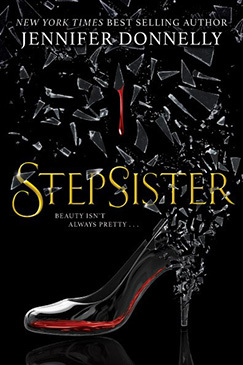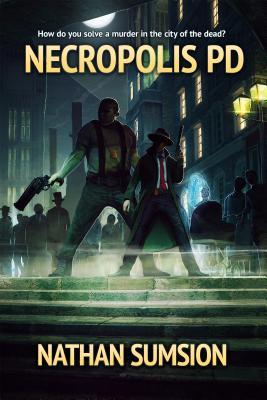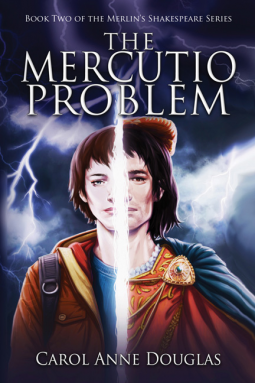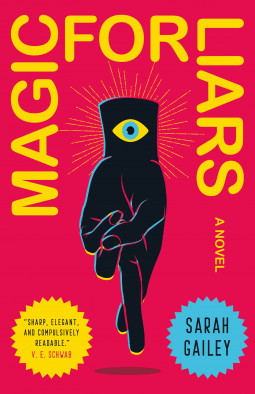Deborah J. Ross's Blog, page 60
September 30, 2019
May Your Year Be Filled with Sweetness
Published on September 30, 2019 17:49
September 27, 2019
Short Book Reviews: Not Your Grandmother's Ugly Stepsister
 Stepsister, by Jennifer Donnelly (Scholastic)
Stepsister, by Jennifer Donnelly (Scholastic)
Stepsister is the latest “fractured fairytale” I’ve read, and there have been many over the years – some pedestrian, some relying only on a single concept, but some brilliant and insightful. Donnelly’s contribution falls squarely in the latter category. It’s based on “Cinderella,” and it takes place after the happy ending, from the viewpoint of one of the Ugly Stepsisters. Ella has gone off to live with her prince in the castle (and they have since become King and Queen of France), and the stepsisters and their mother live in a decaying mansion (Maison Douleur, “House of Pain”) with no money and certainly no social prospects, as they are widely reviled as the ones who heaped so much misery upon sweet, lovely Ella.
Of course, there’s more to the story. That’s only the set-up. Although Maman is very much the scheming match-maker of the popular tale, Octavia and Isabelle (the viewpoint character) are anything but the self-absorbed, selfish creatures we have come to despise. Neither particularly wanted to get married, let alone to a prince. Tavi lived for science and mathematics, while Isabelle was devoted to heroic adventure, military strategy, and her favorite horse (at least, before Maman embarked upon her marriage schemes). Even after Ella goes off to her happy ending, Isabelle’s fate is not their own. Literally, because the incarnations of Chance and Fate have a wager as to whether she can overcome the harshness of her present circumstances, or whether she and her family will fall prey to the invading armies of the evil General Volkmar. In the end, it’s up to Isabelle, with her keen wit and her capacity for growth (and remorse) to thwart the bloodbath and save Queen Ella’s throne.
The characters are wonderful, the details whimsical and grim, the emotional arc pitch-perfect, and luscious prose like this:
“The pieces of your heart are restored. The boy is love – constant and true. The horse, courage – wild and untamed. Your stepsister is your conscience – kind and compassionate. Know that you are a warrior, Isabelle, and that a true warrior carries love, courage, and her conscience into battle, as surely as she carries her sword.”I’ll be re-reading this one. Highly recommended.

Published on September 27, 2019 01:00
September 25, 2019
Today's Moment of Art
Published on September 25, 2019 01:00
September 20, 2019
Short Book Reviews: A Living Detective in the City of the Dead
Necropolis PD, by Nathan Sumsion (Parvus Press)
 This debut novel from a small press is an interesting riff on the typical “zombies = bad” trope. Sumsion’s city, Necropolis, is made up of bits and pieces of forgotten things, whether they are articles of clothing, furniture, or entire buildings. The place has the grimy, worn, gloomy aspect of forgotten things, and it is into their worth that college student Jacob Green stumbles. After being interrogated by terrifying dead men, he’s drafted into the Necropolis Police Force as a detective, and his chief torturer, Marsh, is his partner. Neither Marsh nor the other detectives are willing to help educate Jacob, but the vampire Chief of Police insists that Jacob is crucial to solving their current case: a series of murders of the revenant (dead) citizens. In addition to Marsh, who slowly thaws toward Jacob, Jacob is psychically linked with Ms. Greystone, a ghost, who is my favorite character in the book. She’s brusque, efficient, dry-witted, and only half-there. The plot takes various twists as Jacob struggles to learn police procedure while tracking down clues and trying to integrate into the police department. The world of Necropolis includes shudder-worthy sequences (the insanely violent child revenants in “The Nursery,” for example) but also moments of humor and pathos. Needless to say, Jacob turns out to be considerably more resourceful than his dead colleagues or he himself give him credit for, much to my enjoyment.
This debut novel from a small press is an interesting riff on the typical “zombies = bad” trope. Sumsion’s city, Necropolis, is made up of bits and pieces of forgotten things, whether they are articles of clothing, furniture, or entire buildings. The place has the grimy, worn, gloomy aspect of forgotten things, and it is into their worth that college student Jacob Green stumbles. After being interrogated by terrifying dead men, he’s drafted into the Necropolis Police Force as a detective, and his chief torturer, Marsh, is his partner. Neither Marsh nor the other detectives are willing to help educate Jacob, but the vampire Chief of Police insists that Jacob is crucial to solving their current case: a series of murders of the revenant (dead) citizens. In addition to Marsh, who slowly thaws toward Jacob, Jacob is psychically linked with Ms. Greystone, a ghost, who is my favorite character in the book. She’s brusque, efficient, dry-witted, and only half-there. The plot takes various twists as Jacob struggles to learn police procedure while tracking down clues and trying to integrate into the police department. The world of Necropolis includes shudder-worthy sequences (the insanely violent child revenants in “The Nursery,” for example) but also moments of humor and pathos. Needless to say, Jacob turns out to be considerably more resourceful than his dead colleagues or he himself give him credit for, much to my enjoyment.The innovative elements, character development, and intrigue kept me turning the pages. I’m not an aficionado of zombie anything (movies, books, you name it) so aspects that caught my attention as fresh might not affect an informed zombie fan in the same way. However, Jacob and in particular Ms. Greystone rise above the genre. At the same time, I found a number of literary flaws problematic. Both the prose itself and the book are flabby in the sense of containing too much that is repetitious, redundant, or unnecessary. The flashbacks, at first confusing, became irritating because they only repeated information I had already surmised and broke the forward momentum of the story. I hope that the author learns to trust his readers to pick up subtle information instead of needing to hammer it home repeatedly. The use of “some” (instead of “a” or “the”) or “some kind of” are a bête noir of mine, and in almost all cases can be excised without significant alteration in meaning. That said, these shortcomings became less intrusive as the story proceeded and did not interfere with my enjoyment of the way everything wrapped up.

Published on September 20, 2019 01:00
September 18, 2019
Today's Moment of Art
Published on September 18, 2019 01:00
September 16, 2019
Late Summer Garden
This year our garden has been less successful than usual, in no small part due to skyrocketing inroads made by critters (squirrels for sure, maybe wood rats, too). They've managed to nibble the tender shoots and flowers of all our squash plants, so we aren't expecting any. Interestingly, they've left the cucumbers alone (too prickly?). The asparagus patch is about exhausted, the crowns having a limited life span. We're planning on eventually digging up those that are left, evaluating, and moving them to another location. Meanwhile, here's what I gathered the other day:
[image error]
Rubarb: second harvest. Our plants give us two harvests a year, one in early spring, one in late summer. I simmer it with sugar and cinnamon, then freeze it to use for desserts in the winter holidays. Ours also never gets really red, but it tastes just dandy.
Lemon cucumbers. Rodent-proof. We hope. So far.
Green beans, Emerite variety. This type is prolific and stays tender even if seeds form. It's possible to use as a dry bean, too, but we eat them green. They freeze really well, too, when lightly steamed and vacuum sealed.
Not shown: tomatoes (late this year), grapefruit (our poor tree is sooo confused by climate change, it keeps dropping fruit now instead of in the winter). Wild blackberries, almost done in the heat (33 quarts frozen so far...)
Yet to come: pears and apples, sunchokes (after first frost), maybe parsnips (ditto).

[image error]
Rubarb: second harvest. Our plants give us two harvests a year, one in early spring, one in late summer. I simmer it with sugar and cinnamon, then freeze it to use for desserts in the winter holidays. Ours also never gets really red, but it tastes just dandy.
Lemon cucumbers. Rodent-proof. We hope. So far.
Green beans, Emerite variety. This type is prolific and stays tender even if seeds form. It's possible to use as a dry bean, too, but we eat them green. They freeze really well, too, when lightly steamed and vacuum sealed.
Not shown: tomatoes (late this year), grapefruit (our poor tree is sooo confused by climate change, it keeps dropping fruit now instead of in the winter). Wild blackberries, almost done in the heat (33 quarts frozen so far...)
Yet to come: pears and apples, sunchokes (after first frost), maybe parsnips (ditto).

Published on September 16, 2019 01:00
September 13, 2019
Book Review: Saving Shakespeare's Endings
The Mercutio Problem, by Carol Anne Douglas (Hermione Books)

I picked up The Mercutio Problem unaware that it was a sequel to Merlin’s Shakespeare. One of the challenges of writing a stand-alone book within a series, or linked to other series, is the balance between giving the new reader all the necessary background, developing the characters well enough, and yet not boring readers who are already familiar with the cast and setting. Sometimes I can’t tell if a book is a sequel or a stand-alone with a rich and brilliantly handled back story. In this case, it became obvious almost immediately, although to her credit, the author gave me all the information I needed to understand and enjoy the present story.
So the back story from the first book is that Merlin (from the legends of King Arthur) enlists the help of Beth Owens, high school theater student, to convince William Shakespeare to write a play about King Arthur. In the course of this adventure, she meets many characters from Shakespeare’s plays, including flirtatious, charismatic Mercutio (from Romeo and Juliet) and the ultimate villain, Richard III.
At the beginning of the present book, Mercutio is dead, slain not by Tybalt but by Richard. Here comes Merlin again, only this time the problem is that Richard wants to change the ending of Shakespeare’s plays (especially his own) and is going about enlisting various other characters and the ghost of Christopher Marlowe in order to pressure Shakespeare. Not only that, but Merlin offers an added inducement to Beth, that she will take the form of Mercutio within Shakespeare’s plays and if she dies in that form, he will live again. Got all that?
Then comes the fun part, visiting the plays and interacting with the characters, many of whom wander into other plays, too. The dialog is often brilliant, reflecting not only Shakespearean language but the particularities of the specific character (for example, Julius Caesar always talks about himself in the third person and rambles on about honor and fate). Bottom has gone missing, so Midsummerland is perpetually rainy (and Bottomless). Lady MacBeth, who knows a thing or two about tyranny and regret, plays a pivotal role in organizing the resistance against Richard, and King Lear, consumed with guilt, goes rampaging through the other plays to slay anyone who wants to keep the plays as they were originally written.
For me, though, the most interesting parts of the book were the subtle examinations of gender and sexual orientation. Beth encounters the world of the plays primarily in Mercutio’s male (heterosexual) body – although for some reason her genitalia remain female. This anatomical omission strikes her with a sense of relief, which that bothered me. I couldn’t quite put my finger on it until I had a chat with a trans man friend, who spoke about longing about the flat chest he’d had as a child. It seems to me a cheat to give Beth an emasculated, sexless version of Mercutio, instead of the experience of being truly male. Being in Mercutio’s body and behaving as Mercutio offers so many openings for challenging Beth’s notions of gender and orientation, it seems a shame to chicken out of the hard parts (excuse the pun).
A number of times Beth finds herself puzzled but not put off by her/Mercutio’s attraction to women, and wonders what this means for her own, hitherto straight, sexuality. She wrestles with jealousy when her best friend, Sita, comes out as lesbian and gets a girlfriend. Unfortunately, these issues were only suggested and not fully played out. Beth becomes temporarily disenchanted with Mercurio’s flirting but she never comes to a resolution about her own orientation. It would have been marvelous to see her explore non-cis-gendered sexuality, to see her insights and empathy play out in her relationships, and to have her accept being different in more ways than being able to travel to the world of Shakespeare’s plays. While The Mercutio Problem is labeled Young Adult, I don’t think these issues are beyond teens; in fact, I see today’s sophisticated teens as hungry for honest, deep explorations of gender and sexuality.
The book’s prose itself was uneven, from awkward sentence structure and jolting shifts of place and thought progression to nicely described settings from the plays, characterizations, and occasionally brilliantly insightful lines. My favorite was spoken by Ms. Portia Desdemona Capulet, the drama teacher: “But remember that loving great people from the past must always be a one-way love.”
All in all, though, this book was an enjoyable read and a delight to anyone familiar with the many worlds of Shakespeare’s plays. I look forward to reading more of Beth’s adventures, especially her journey of gender and sexual self-discovery.
The usual disclaimer: I received a review copy of this book, but no one bribed me to say anything in particular, one way or the other, about it.

I picked up The Mercutio Problem unaware that it was a sequel to Merlin’s Shakespeare. One of the challenges of writing a stand-alone book within a series, or linked to other series, is the balance between giving the new reader all the necessary background, developing the characters well enough, and yet not boring readers who are already familiar with the cast and setting. Sometimes I can’t tell if a book is a sequel or a stand-alone with a rich and brilliantly handled back story. In this case, it became obvious almost immediately, although to her credit, the author gave me all the information I needed to understand and enjoy the present story.
So the back story from the first book is that Merlin (from the legends of King Arthur) enlists the help of Beth Owens, high school theater student, to convince William Shakespeare to write a play about King Arthur. In the course of this adventure, she meets many characters from Shakespeare’s plays, including flirtatious, charismatic Mercutio (from Romeo and Juliet) and the ultimate villain, Richard III.
At the beginning of the present book, Mercutio is dead, slain not by Tybalt but by Richard. Here comes Merlin again, only this time the problem is that Richard wants to change the ending of Shakespeare’s plays (especially his own) and is going about enlisting various other characters and the ghost of Christopher Marlowe in order to pressure Shakespeare. Not only that, but Merlin offers an added inducement to Beth, that she will take the form of Mercutio within Shakespeare’s plays and if she dies in that form, he will live again. Got all that?
Then comes the fun part, visiting the plays and interacting with the characters, many of whom wander into other plays, too. The dialog is often brilliant, reflecting not only Shakespearean language but the particularities of the specific character (for example, Julius Caesar always talks about himself in the third person and rambles on about honor and fate). Bottom has gone missing, so Midsummerland is perpetually rainy (and Bottomless). Lady MacBeth, who knows a thing or two about tyranny and regret, plays a pivotal role in organizing the resistance against Richard, and King Lear, consumed with guilt, goes rampaging through the other plays to slay anyone who wants to keep the plays as they were originally written.
For me, though, the most interesting parts of the book were the subtle examinations of gender and sexual orientation. Beth encounters the world of the plays primarily in Mercutio’s male (heterosexual) body – although for some reason her genitalia remain female. This anatomical omission strikes her with a sense of relief, which that bothered me. I couldn’t quite put my finger on it until I had a chat with a trans man friend, who spoke about longing about the flat chest he’d had as a child. It seems to me a cheat to give Beth an emasculated, sexless version of Mercutio, instead of the experience of being truly male. Being in Mercutio’s body and behaving as Mercutio offers so many openings for challenging Beth’s notions of gender and orientation, it seems a shame to chicken out of the hard parts (excuse the pun).
A number of times Beth finds herself puzzled but not put off by her/Mercutio’s attraction to women, and wonders what this means for her own, hitherto straight, sexuality. She wrestles with jealousy when her best friend, Sita, comes out as lesbian and gets a girlfriend. Unfortunately, these issues were only suggested and not fully played out. Beth becomes temporarily disenchanted with Mercurio’s flirting but she never comes to a resolution about her own orientation. It would have been marvelous to see her explore non-cis-gendered sexuality, to see her insights and empathy play out in her relationships, and to have her accept being different in more ways than being able to travel to the world of Shakespeare’s plays. While The Mercutio Problem is labeled Young Adult, I don’t think these issues are beyond teens; in fact, I see today’s sophisticated teens as hungry for honest, deep explorations of gender and sexuality.
The book’s prose itself was uneven, from awkward sentence structure and jolting shifts of place and thought progression to nicely described settings from the plays, characterizations, and occasionally brilliantly insightful lines. My favorite was spoken by Ms. Portia Desdemona Capulet, the drama teacher: “But remember that loving great people from the past must always be a one-way love.”
All in all, though, this book was an enjoyable read and a delight to anyone familiar with the many worlds of Shakespeare’s plays. I look forward to reading more of Beth’s adventures, especially her journey of gender and sexual self-discovery.
The usual disclaimer: I received a review copy of this book, but no one bribed me to say anything in particular, one way or the other, about it.

Published on September 13, 2019 01:00
September 11, 2019
9/11: A Personal Grief
 I first posted this back in 2015. It seems to be as valid now as then, although I have made significant progress in my recovery from PTSD since then.
I first posted this back in 2015. It seems to be as valid now as then, although I have made significant progress in my recovery from PTSD since then.At this time of year, I often feel out of step with the rest of the country. Like just about everyone else I know who's old enough to remember the events of 9/11, I have a vivid memory of how I learned about them. I was driving my younger daughter to high school and we were listening to the news on the car radio. We heard the announcer cry, "The second Tower is down!" and the rest of the story tumbled out. The way the events unfolded reminded me poignantly of John F. Kennedy's assassination. I was in high school in 1963, just about the same age my daughter was on 9/11. Listening to the news broadcast with her, I experienced a parallel of my own youthful experience. Once again, the world became to be a dangerous and unpredictable place, but for me it was not the first time. I too responded with a feeling that the world has changed forever, but I also had the memory of having walked through this before -- and not just the Presidential assassination.
For me, Septembers will never be solely about 9/11. In this month in 1986, my mother was raped and beaten to death by a neighbor kid on drugs. It was a spectacularly brutal, headline-banner crime, but only part of a larger tragedy, for his own family had suffered the murder of his older brother by a serial killer some years before. My body knows when the anniversary is approaching, even when my thoughts are distracted. The shift in the quality of the light at summer's end reaches deep into my nervous system. The scar tissue on my heart aches. The ghosts of things that once held the power to drive me crazy stir in the darkness. My sleep becomes fragile, even though I no longer have nightmares. It's a hard time, an intensely personal time.
One thing I have learned over the years is that grief isn't fungible; you can't compare or exchange one person's experience with another's or say, This one's pain is two-thirds the intensity of that one's. Grief is grief; loss is loss. There's no benefit to anyone in comparisons. And no one else can do the hard emotional work of healing for us.
Around me and in the media, I see public displays of remembrance and more often than not, I feel reluctant to share mine. For one thing, I've lived with my story for over three decades and I've had extensive trauma therapy, but the person I tell it to is hearing it for the first time. "My god," they say, "how did you live through that?" At most times of the year, it's a gift to be able to sit with them, give them time to catch up, and to share a little of what I've learned about healing. But not this season. I need to have a time just for my own grief, a time that is just for my mother.
If someone says they lost a loved one in 9/11, or they had to pass the rubble every day on the way to work, or they were involved in some other way, they have no need to recite the circumstances. Because those events are known to the greater community, there is a sense of shared experience or at least an appreciation of the horror and grief of those directly affected. Individual losses occur in much smaller communities. I have come to believe that none of us can truly understand what another's loss is like. We are all individuals with our own histories, our own resources, our own lurking insanity. But we can say, "Even though I don't know what you're going through, my heart goes out to you." In my own life, I have found this deeply supportive.
I don't want to minimize or take away from the feelings of anyone affected by 9/11. We should be allies, for surely there is enough compassion, enough tears, enough fury, enough mending of hearts, to go around. Sorrows shared are divided, or so it is said. What we share, in many variations, is the darkness and the long slow journey to the light. We share the craving for justice, the moments of irrational fury, the struggle against a world that seems capricious in its viciousness. We share the desperation to hold someone accountable, to inflict blame, to punish that person to the utmost in the hope that somehow it will make us stop hurting. That desire to lash out and make the perpetrator suffer is a universal human impulse, but I believe it is only one part of the initial reaction to a horrific tragedy. It is something we pass through on our way back to wholeness. Anger and adrenaline, with their energizing power, help us to get through the early stages. However, both are anesthetizing, numbing to both emotion and spirit. If we remain there, frozen, we cannot wrestle with the deeper issues of healing from trauma.
I remember the scene in The Princess Bride where Inigo Montoya finally tracks down Count Rugen, who begs for his life and offers anything. Inigo says, “I want my father back!” (and then kills him). I want my mother back, too! All those who lost loved ones and colleagues want them back. We know that’s impossible, but what is possible is to get our own lives back. Our own selves. Our best selves.
My experience of healing is that I get myself back when I focus on re-engaging with life, on fully experiencing my feelings, on understanding what I have lost and what can never be replaced, but what can be restored. The more I stop looking to an external event (the execution of the murderer) to somehow make me feel better or “achieve closure,” and instead focus on taking care of my insides — my heart, my spirit, my body — the better I fare.
Love. Compassion. Gratitude. Joy. Wonder. Peace.
I can think of no more fitting memorial for my mother . . . or for those who died on 9/11.

Published on September 11, 2019 01:00
September 6, 2019
Short Book Reviews: Murder Mystery Set in a Magical High School
Magic for Liars, by Sarah Gailey (Tor)

In short: now I know why readers have been raving about Sarah Gailey.
In long: this tale begins as a murder mystery set in an exclusive, private high school for the magically gifted. The first-person narrator is a private detective who’s wearied of digging into cases of infidelity and embezzlement, and both excited and intimidated by her first murder investigation. So much is not all that astonishingly new territory. But this is where the story gets complex. Ivy is an unreliable narrator, whose unerring sense of the truth shines through her layers of self-deception, guilt, and inadequacy. To make matters worse, Ivy’s brilliant, charismatic, and magically talented sister teaches at the school and was romantically involved with the murder victim.
The unfolding of the mystery parallels Ivy’s exploration of her own past, her relationship to her sister, and who she herself might have been “in another life,” if she and her sister had been close, if she had been magical, if she had gone to a good school, if she were attractive and confident, and so forth. The line between Ivy’s wishful imagination and the possibility that she is in the process of unlocking hidden potential is ambivalent, as it should be, making Ivy a complex and utterly sympathetic character. This subtlety arises from superb narrative skill and deep insight into the human psyche, all within the framework of a fascinating familiar-but-new magical world, all the agonies of revisiting high school, and a murder mystery full of twists and surprises.
Strongly recommended.
The usual disclaimer: I received a review copy of this book, but no one bribed me to praise it. Although chocolates and fine imported tea are always welcome.

Published on September 06, 2019 01:00
September 4, 2019
Today's Moment of Art
Published on September 04, 2019 01:00











